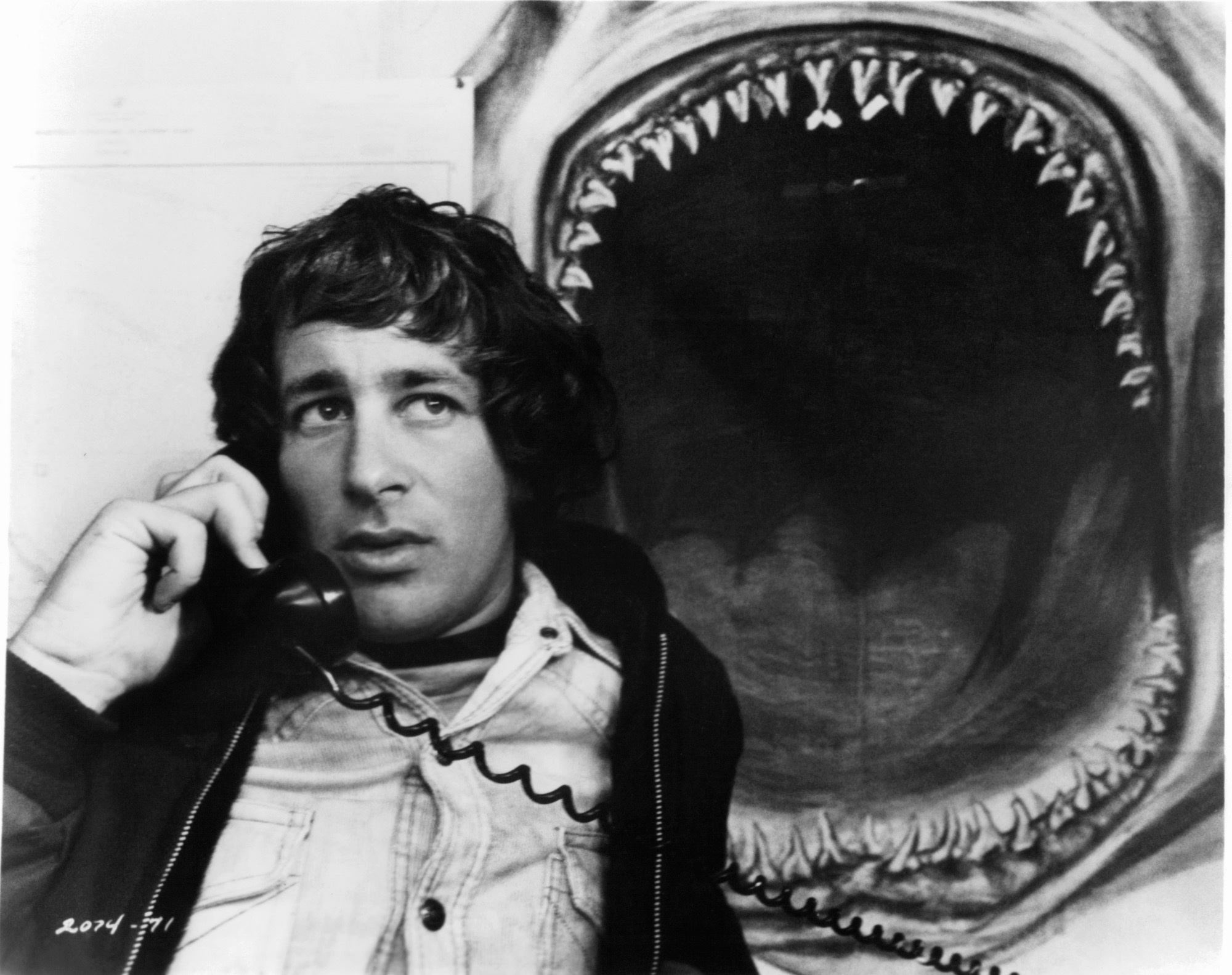
- Golden Globe Awards
1976: Summer Will Never Be the Same

The quickest way to send beachgoers bolting from the beach is to announce the arrival of a shark. But leave it to Steven Spielberg to discover the fastest way to entice filmgoers to flock to cinemas is to showcase that same said predator. On June 20, 1975, the then 28-year-old director released Jaws, forever changing the movie industry with the advent of what is now simply known as the “summer blockbuster.”
Based on Peter Benchley’s 1974 novel of the same name, the story centers on a great white shark who terrorizes a small New England coastal community. The New York Times reviewed the book as “a fluid entertainment.”
Moviegoers tended to agree, powering the film to 25 million ticket sales in its first 35 days of release. Jaws became the first movie to crack the $100 million domestic mark on its way to claiming over $470 million worldwide (in 1970s dollars).
However, the journey to that success was filled with obstacles and impediments. “It was like working in an earthquake,” noted Spielberg when he spoke to the Hollywood Foreign Press Association in 1975. “You are always moving. Eight hour a day your ship is tossing and you’re slipping and sliding. The effects aren’t working and the tides are pulling the boats apart.”
Then, to sum up the frantic experience, Spielberg made a bold prediction as to his future, and what would become one of the greatest artistic careers in the business: “It was the toughest movie I will probably ever make, or ever really want to make.”
How tough? Spielberg threatened to quit three times during production, not just because of the weather and mechanical hindrances that plagued the filming, but due to studio interference. “I heard some people at the studio were considering making the movie in a tank with miniatures,” he explained.
Noting how all the great masters of craft who worked on such seaworthy films as Captains Courageous and Mutiny on the Bounty had passed away, Spielberg felt he would lose credibility if he made the movie in a controlled environment. “I wanted to go on the high seas to shoot the picture, the way it really happened,” he said. “That was one instance where I had to fight.”
History proved Spielberg right, as Jaws captured cultural enthrallment. Decades later, John Williams’s theme still serves as shorthand for impending peril.
Brilliantly marketed, Jaws also changed the way studios viewed their release schedules. Summer, once considered the bastion of holiday travelers, became prime real estate for tentpole releases. The film’s simple, high-concept formula introduced viewers to the now familiar combination of an everyman protagonist, big set pieces, snappy one-liners, and big, blowout finale. Look no further than some of what followed in Jaws’s footsteps: Star Wars, Raiders of the Lost Ark, Alien, Ghostbusters, and Die Hard.
In 1976, Jaws garnered four Golden Globe nominations — including the first of Spielberg’s eventual 12 nods for Best Director — with Williams winning gold for his iconic score.

